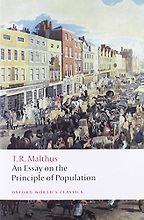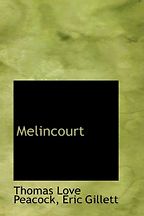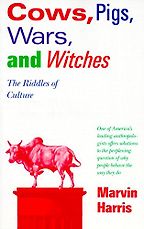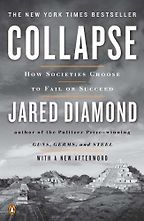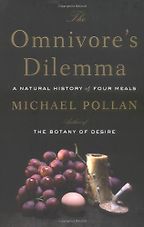Food waste is not a new subject. Philosophers, economists and even politicians have been discussing it for hundreds of years.
That’s right. It was discussed extensively in the classical world and, more recently, it became a hot topic in the 18th century. More than 200 years ago, in The Principle of Population, Malthus raised questions about what we should eat – and farm – and how our choices affect our fellow humans. Most people today remember him for being a prophet of doom and gloom, predicting that population growth would outstrip food production causing widespread famine.
In fact, by raising the question of whether food production leads to population growth or whether population growth drives us to find more efficient ways of producing food, he encouraged a big political debate about food efficiency. In terms of waste, he suggested that in some circumstances it was no bad thing. If you produce a surplus, you provide a buffer against times of shortage. You can even justify the luxury of wasting that surplus in times of plenty.
But today we live in a time of scarcity.
No, that’s the interesting thing. We perceive there’s a scarcity because millions starve and nearly a billion are malnourished. The reality is that there’s a grotesque imbalance: in the US, more food is fed to livestock than is eaten by humans. Globally we use about 1.2 billion tonnes of fodder to rear livestock. But the UN has calculated that if we fed food wastes to livestock instead, we would save enough to feed about three billion people – sufficient to continue feeding the world’s growing population until 2050.
There are a lot of complex problems in the world that require complex solutions but, in terms of the food scandal, you say there are huge opportunities there for the taking.
Again, if we look back at history, we can see this isn’t the first time we’ve faced these problems. Twenty years after Malthus first published, the satirist Thomas Love Peacock wrote a novel called Melincourt to explore the contemporary situation and point out its inconsistencies and fundamental immorality. Two characters take opposite sides: one, a Mr Fax, takes the Malthusian line – surplus, luxury and even waste are morally justifiable because they provide a buffer in hard times – while Mr Forester argues that the waste of food is the most pernicious form of luxury: it deprives others of the means of existence.
“In the US, more food is fed to livestock than is eaten by humans.”
As the debate draws to a conclusion, Forester asks Fax what he thinks about those who don’t hold back from luxury in times of scarcity. He replies: ‘Truly I have nothing to say for them, but that they know not what they do.’
But the point is that today we do know. There isn’t much excuse for ignorance any more. If the billion of us who live in the wealthier countries wasted 25 per cent less, and I don’t mean feeding livestock, just what we throw away, that’d be enough to lift the one billion malnourished people in the world out of hunger.
So why do we do it? Why do we waste so much?
No matter how extraordinary human behaviour – in our own culture or elsewhere – there’s always an explanation for it. That’s what Marvin Harris argues very persuasively in Cows, Pigs, Wars and Witches: The Riddles of Culture. It really opened my eyes.
In the cow section, for example, he explores why starving peasants in India today don’t go and kill the sacred cows and eat them. After all, the Rig Veda gives long descriptions of horse and cow sacrifices and meat eating in the India of 2,000 years ago. So Harris looks at why vegetarianism first took root in India and why cows came to be held sacred. It was essentially due to high population density at a time of food scarcity: cows are simply a more efficient way of turning grass into food. Plus they pull ploughs, they provide fertiliser in the form of dung and, in a good year, maybe a bullock too.
He looks at more apparently mysterious behaviour too. In the potlatch ceremony practised by some Native Americans, a clan chief would call a gathering and effectively give away the clan’s possessions. Why? Partly as a show of strength but partly to encourage his people to produce a surplus and to redistribute wealth where it’s needed.
Get the weekly Five Books newsletter
Conspicuous consumption therefore does have a purpose. Producing a surplus – and consuming it, even wastefully in good years – can arguably contribute to food security.
So the question is then how much surplus do we need?
It’s surprising how little attention agronomists have given this problem but there is general agreement that around 130 per cent of a population’s nutritional requirements is sufficient to guarantee food security. Yet today, surplus levels have risen to about 190 per cent in the US and between 160 and 190 per cent in Europe. Add on what we feed to livestock and it rises to between 350 and 400 per cent in the richer countries.
What happens if we carry on like this?
Well that’s what Jared Diamond explores so brilliantly in Collapse. He builds on many of the ideas that Harris explores, looking at the historical and evolutionary results of surplus: it frees people from producing food, giving rise to social hierarchies including chiefs, priests, artisans and, of course, soldiers. You can argue that producing too much has been the root of our success as a race today.
But can we continue like this? Ethically, no: agricultural expansion is one of the chief reasons we’re in the middle of a period of mass species extinction. Furthermore, the way we feed ourselves is unsustainable in terms of our own future: desertification is a huge problem, up to 38 per cent of agricultural land is degraded, the UN predicts that climate change will limit productivity by mid-century, and we’re running dry, literally – in many drier countries, water now has to be mined up to 1km deep. But these aquifers will eventually run out.
Diamond does show that some societies have managed to overcome such difficulties in the past, however. He cites the history of the Pacific island of Tikopia, where islanders collectively decided to slaughter all their pigs in about 1600. Why? Because there were too many people and not enough food. The point is we can learn from our mistakes, from our history.
So what do we do?
Just look at what’s on your plate and ask how it got there. That’s what Michael Pollan asks in The Omnivore’s Dilemma. The great thing about him is that he presents himself as just an ordinary guy asking what he should eat. He’s engaging, funny, clever and practical too.
He walks us through these hugely complex problems by asking very simply, ‘What can I do?’ And he does that by looking at what he puts on his plate from day to day – industrially manufactured food, organic or alternative food, food we forage ourselves, the lot.
You believe it’s down to personal responsibility then?
In part, yes. This food is being produced for us. So we have a right – and an obligation – to ask that it be produced sustainably. And at the end of Pollan’s book, he concludes that there is food out there that tastes good, is good for us and is good for the planet.
We all need to wake up to it. And do it urgently too. Otherwise people carry on starving unnecessarily and we will continue to exterminate our fellow species unnecessarily.
December 22, 2009. Updated: December 16, 2018
Five Books aims to keep its book recommendations and interviews up to date. If you are the interviewee and would like to update your choice of books (or even just what you say about them) please email us at [email protected]
Five Books interviews are expensive to produce. If you've enjoyed this interview, please support us by donating a small amount.
